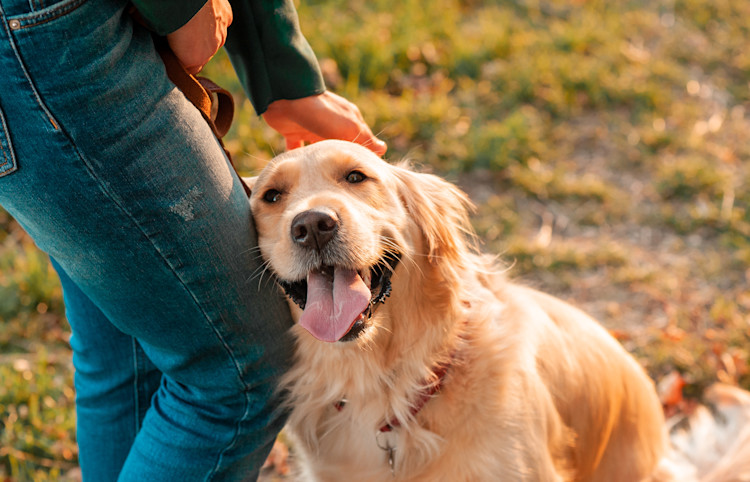
Dog Barking at Vacuum: Understanding and Calming Techniques
Share
For many pet owners, the gentle hum of a vacuum cleaner often transforms into a soundtrack of chaos filled with sporadic barks and frantic paws. Dogs barking at vacuums is a familiar scene, raising questions and concerns for health-conscious pet owners. Understanding why dogs react this way can help us address the underlying issues effectively, leading to a calmer home environment and improving your dog's wellbeing.

Why Do Dogs Bark at Vacuums?
Firstly, it's essential to recognize that dogs' barking at vacuums is not unusual. Several factors contribute to this behavior. Dogs have incredibly keen senses, and the loud noise of a vacuum can be overwhelming. This noise can trigger a dog's fight or flight response, causing them to bark as a defense mechanism. Additionally, the movement of the vacuum cleaner can be perceived as a threat, further fueling their anxiety and resulting in the barking behavior.
Moreover, some dogs come to associate the vacuum with negative experiences. If they've previously been scolded for barking, even subconsciously, they may bark at the vacuum out of fear or frustration. Interestingly, this behavior isn't restricted to vacuums but can apply to other stimuli such as noises or cats, which often provoke a similar response.
Potential Health Implications for Dogs
One of the primary concerns for health-conscious pet owners is the stress and anxiety that the barking and fear can induce in their dogs. Continuous exposure to stress can weaken a dog's immune system, leading to various health conditions over time such as digestive issues or behavioral disorders. Moreover, barking excessively can strain a dog's vocal cords, leading to potential throat issues if not addressed promptly.
Creating a Calm Environment
Thankfully, there are actionable steps you can take to ease your dog's anxiety around vacuums. Creating a calm environment is one of the primary strategies pet owners can employ. Consider playing calming music or white noise during vacuuming sessions to help mask the sound of the vacuum. Regular exercise can also tire out an active dog, reducing the likelihood of them barking excessively at the vacuum.
You might also refer to professional advice from sources like dog training tips to learn effective techniques for acclimating your dog to vacuums.
Desensitization Techniques
Desensitization is another technique many health-conscious pet owners find helpful. It involves gradually introducing your dog to the vacuum. Start by allowing the dog to sniff and explore the vacuum in its off state. Praise them when they remain calm, creating positive associations. Gradually increase the exposure by turning the vacuum on for short durations, slowly increasing the time as your dog becomes more comfortable. Consistency and patience are key to successful desensitization. For more on this, check out our tips on desensitization techniques
Positive Reinforcement
Positive reinforcement is a powerful tool for shifting your dogs perspective of the vacuum. Reward your dog with treats, praise, or play when they remain calm around the vacuum. This method not only helps reduce barking but also strengthens the bond between you and your furry friend. The rewards create a positive association, making your dog less likely to view the vacuum as a threat in the future.
The Role of Professional Assistance
While home strategies are beneficial, there are times when professional assistance is necessary. If a dog's barking escalates to signs of aggression or if standard techniques are ineffective, consult with a trained canine behaviorist. These professionals can tailor specific strategies based on your dogs individual needs and provide further training tips like those available from the American Kennel Club.
Therapeutic Aids
Exploring therapeutic aids like anxiety wraps or pheromone diffusers can further assist in calming anxious dogs. These aids do not replace training but can complement other methods effectively. They offer comfort and help in reducing tension, making it easier for your dog to become accustomed to the vacuum.

FAQ
Q1: Why does my dog bark even when the vacuum is off?
A: Dogs with high anxiety levels may associate the presence of the vacuum with noise, leading to barking. Gradual exposure and creating positive experiences with the vacuum may help.
Q2: Are certain breeds more prone to barking at vacuums?
A: Breeds with heightened auditory senses or those that tend to be more anxious may bark more at vacuums. However, any dog breed can develop a similar behavior pattern.
Q3: Can training help my dog stop barking at the vacuum?
A: Yes, with consistent training, positive reinforcement, and sometimes professional help, you can reduce or eliminate a dog's barking habits related to vacuums.
This article contains affiliate links. We may earn a commission at no extra cost to you.
